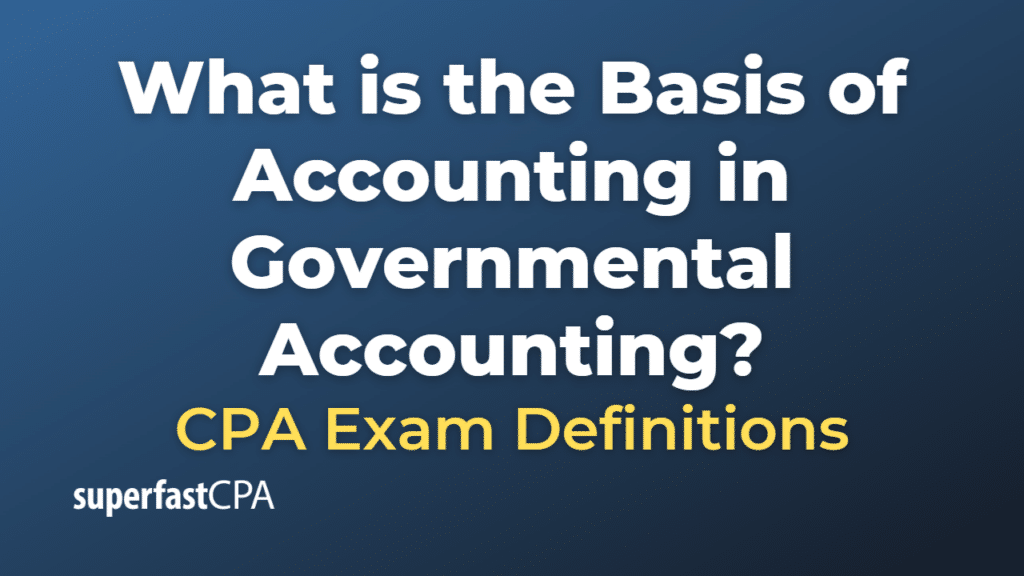Basis of Accounting in Governmental Accounting
The basis of accounting in governmental accounting refers to the recognition of transactions and events in the financial statements. In governmental accounting, the basis of accounting used often depends on the type of fund being considered. There are primarily two bases of accounting used in governmental accounting: accrual basis and modified accrual basis.
- Accrual Basis: Under the accrual basis of accounting, revenues are recognized when earned, and expenses are recognized when incurred, regardless of the timing of related cash flows. This is the same method that is used in private sector accounting. In the context of governmental accounting, the accrual basis is used by proprietary and fiduciary funds. Proprietary funds are those through which a government conducts business-like activities (like utilities), and fiduciary funds are those that hold assets in a trustee or agency capacity.
- Modified accrual basis: The modified accrual basis of accounting combines elements of the accrual basis and cash basis. Revenues are recognized when they become both measurable and available to finance the governmental entity’s current period operations. Available” usually means collectible within the current period or soon enough thereafter to be used to pay liabilities of the current period (typically, 60 days). Expenditures, rather than expenses, are recognized in the period in which the fund liability is incurred, if measurable, except for unmatured interest on general long-term debt, which should be recognized when due. The modified accrual basis of accounting is typically used by governmental funds like the general fund, special revenue funds, debt service funds, and capital projects funds.
Choosing the appropriate basis of accounting is crucial in governmental accounting because it affects when transactions are recorded and thus the presentation of the financial health of the governmental entity. It’s also important for ensuring that the entity complies with legal and contractual requirements.
Example of the Basis of Accounting in Governmental Accounting
Let’s consider two examples to illustrate the different bases of accounting in governmental accounting:
- Accrual Basis Example (proprietary fund): Suppose a city operates a water utility, which is accounted for in a proprietary fund. Under the accrual basis of accounting, the city would recognize revenue when it bills customers for water usage, regardless of when it actually receives payment. Similarly, it would recognize expenses when it incurs them. For instance, if the city orders new equipment for the water treatment plant, it recognizes the expense when it receives the equipment, not when it pays the invoice.
- Modified Accrual Basis Example (Governmental Fund): Now, consider the city’s general fund, which is used to account for most of its tax-supported activities. Under the modified accrual basis, the city would recognize property tax revenue when it becomes both measurable (the tax levy is known) and available (collected within the current period or soon enough thereafter to be used to pay liabilities of the current period). For instance, if the city levies property taxes in December 2023 for the fiscal year 2024, it would not recognize the revenue in 2023, even if some taxpayers pay their taxes early. The city would recognize the revenue in 2024, when it’s both measurable and available. As for expenditures, the city would recognize an expenditure when a liability is incurred that will be paid from current financial resources. For example, if the city signs a contract for road repairs to be performed in the current fiscal year, it recognizes the expenditure when the repair work is completed and the city becomes obligated to pay, not when the cash payment is made.
Remember that these examples are somewhat simplified. The rules for when to recognize revenues and expenditures under the modified accrival basis can be complex and depend on the specific circumstances.













